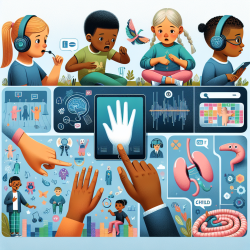Introduction
Suicide clusters, although rare, can have profound impacts on communities, especially among vulnerable populations such as children and adolescents. According to the Centers for Disease Control and Prevention (CDC), these clusters can lead to prolonged grief, heightened fear, and anxiety about further deaths. The recent CDC guidance, Background and Rationale — CDC Guidance for Communities Assessing, Investigating, and Responding to Suicide Clusters, United States, 2024, provides a comprehensive framework for practitioners to address and mitigate these occurrences effectively.
Understanding Suicide Clusters
Suicide clusters are defined as a series of suicides or suicide attempts that occur closer together in time and space than would typically be expected. These clusters can be categorized into two types:
- Point Clusters: These occur within a specific location over a short period.
- Mass Clusters: These are spread out geographically but occur within a similar timeframe.
Point clusters often involve adolescents or young adults with a history of substance use, self-harm, and mental illness. Understanding these risk factors is crucial for practitioners to identify and support at-risk individuals effectively.
Implementing CDC's Guidance
The CDC's updated guidance provides a robust framework for communities to assess, investigate, and respond to suicide clusters. Here are key takeaways for practitioners:
1. Comprehensive Assessment
Practitioners should utilize a variety of data sources and methods to identify and confirm suspected suicide clusters. This includes leveraging social media analytics, geographic information systems, and statistical methods such as Knox, Poisson, and Scan tests.
2. Risk and Protective Factors
Understanding the risk factors, such as exposure to suicide through media or social connections, is vital. Conversely, promoting protective factors like responsible media reporting and providing resources for coping strategies can mitigate the risk of further suicides.
3. Community Response Plan
Developing a tailored response plan that considers the unique needs and cultural characteristics of the community is essential. This plan should include:
- Immediate intervention strategies
- Long-term support mechanisms
- Collaboration with local health departments and community leaders
Encouraging Further Research
While the CDC's guidance provides a strong foundation, there is still much to learn about the triggers and mechanisms behind suicide clusters. Practitioners are encouraged to engage in ongoing research and data collection to enhance our understanding and improve intervention strategies.
Conclusion
By implementing the CDC's comprehensive guidance, practitioners can make data-driven decisions to effectively address and mitigate the impact of suicide clusters in their communities. This proactive approach not only supports at-risk individuals but also fosters a resilient and informed community.
To read the original research paper, please follow this link: Background and Rationale — CDC Guidance for Communities Assessing, Investigating, and Responding to Suicide Clusters, United States, 2024.










